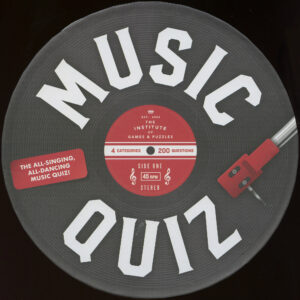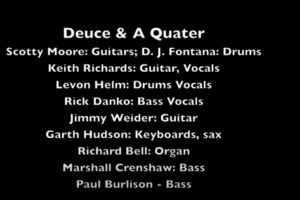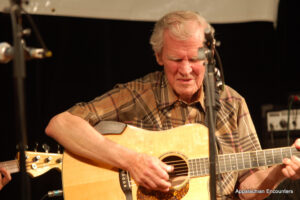A musician who aspires to be great must understand far more than how to play the notes. There are plenty of people who can do that. Nobody would argue, for instance, that Willie Nelson is the greatest guitar player around. His appeal — and hence his fame — comes from something entirely different.
This interesting quote from Marty Stuart suggests that he has this very real, albeit hard to define, quality:
“I’ve always thought that country music had a really unique relationship with gospel music,” Stuart says. “It is interesting to me that country stars can sing drinking and cheating songs authentically, then at some point during the evening or the broadcast, take their hats off and say, ‘Friends, here’s our gospel song.’ If it’s the right messenger it seamlessly flows. That’s a time-honored tradition, from Jimmie Rodgers to Hank Williams to Johnny Cash. Rogue prophets and rogue preachers. That is my world.”
Stuart may have had a head start in his understanding because of his unique lineage. He is of French, English, Choctaw, and Colombian descent. This understanding, coupled with great musicianship, has made him a bit of a ubiquitous figure in country music. The fact that he hosted a country music show (along with his band, The Fabulous Superlatives) doesn’t hurt.
Stuart was born in 1958 in Philadelphia, Mississippi. He of course was a guitar nut and a professional at the age of 12. His bio shows that he quickly was on stage with the very top country performers. He began by playing with Lester Flatt. When Flatt passed away, he was in bands with Vassar Clements and Doc Watson. He joined Johnny Cash’s band in 1980. He eventually married — and divorced — the icon’s daughter Cindy.
The real bios do a better job of the tracing Stuart (or anyone else’s) career than I do. The main takeaway is that Stuart advanced quickly. In addition to playing with the elite, Stuart launched a solo career, which continues.
A telling highlight of Stuart’s trajectory is a 1999 theme album called “The Pilgrim,” about a tragic love triangle. Stuart explained that he had been “chasing hits” not enjoying what he was doing. The album, on which he wrote every song (with co-writing credits on one) was a way to reinvigorate his love of music. The album was a critical success but did not do well commercially. My guess is that he was fine with that outcome.
Above is “(Now And Then) There’s A Fool Such As I,” featuring Kayton Roberts, Hank Snow’s steel guitar player. Below is “The Whiskey Ain’t Workin’,” with Travis Tritt.
Biography, Marty Stuart’s website and Wikipedia were sources for this post. The hompage photo was taken by Forrest L. Smith III.










